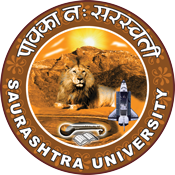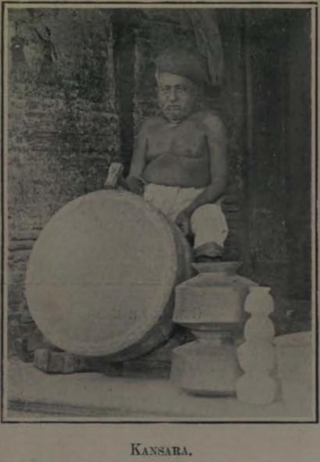This article relies largely or entirely on a single source .(June 2011) |
The Machhoya Ahir are a gotra of the Ahir found in the Rajkot, Kutch, Junagadh, Dwarka,Amreli, Bhavnagar, Morbi, Jamnagar state of Gujarat in India. [1]
This article relies largely or entirely on a single source .(June 2011) |
The Machhoya Ahir are a gotra of the Ahir found in the Rajkot, Kutch, Junagadh, Dwarka,Amreli, Bhavnagar, Morbi, Jamnagar state of Gujarat in India. [1]
When the Ahirs came from Mathura to Dwarka with Lord Krishna, they spread all over Saurashtra and Kutch, Gujarat region.The Maschoiya are a community of Ahirs who are said to have settled along the banks of the Machhu-katia river, and the word Maschhoiya literally means those from Macchu-katia. According to the traditions of the Maschoiya were originally Samma Ahirs, and an female ancestor left Sindh for Saurashtra, where she married an Ahir king. Their descendants thus became Maschoiya Ahir. The Maschoiya Ahir are found mainly in Rajkot District, Kutch District, Morbi District, Junagadh District, Amreli and Bhavnagar found in. They are a Gujarati speaking community. [1]
The Maschoiya are divided into a number of exogamous clans called Ataks like
Humbal,Ahir, Lokhil, Khimaniya, Mand(Marand), Miyatra (Myatra), Makawana, Dangar, Sonara, Jalu(Jaru), Chaiya(Chhaiya), Bakotra(Bakutra), Virda, Kangad, Zer, Lavadiya, Meta, Herbha, Hethvadiya, Chavda, Jatiya, Lula, Balasara, Gujariya, Kothivar Goyal(Gohel) Chudasama, Avadiya, Segaliya, Khatariya, Jiladiya, Kuvadiya, Garchar, Kihor And many more all of which are of equal status. They belong to Kshatriya varna. [2] Unlike other Ahir communities in Gujarat, the Maschoiya practice consanguineous marriages. Most of working on salt industry,transport,construction,farming,and extra fields. [3]

Kathiawar is a peninsula, near the far north of India's west coast, of about 61,000 km2 (23,500 sq mi) bordering the Arabian Sea. It is bounded by the Gulf of Kutch in the northwest and by the Gulf of Khambhat in the east. In the northeast, it is connected to the rest of Gujarat and borders on the low, fertile hinterland of Ahmedabad. It is crossed by two belts of hill country and is drained radially by nine rivers which have little natural flow aside from in monsoon months, thus dams have been built on some of these. Kathiawar ports have been flourishing centres of trade and commerce since at least the 16th century.

Saurashtra, also known as Kathiawar, is a peninsular region of Gujarat, India, located on the Arabian Sea coast. It covers about a third of Gujarat state, notably 11 districts of Gujarat, including Rajkot District. It was formerly a state of India before it merged with Bombay state. In 1961 it separated from Bombay and joined Gujarat.

Rajkot district is one of the 33 districts of the Indian state of Gujarat. Located in Saurashtra peninsula, Rajkot city is the administrative headquarters of the district. It is the third-most advanced district in Gujarat and the fourth most populus.

Junagadh Agricultural University (JAU) is a public state agricultural university at Junagadh in the Indian state of Gujarat. Junagadh Agricultural University offers education in agriculture and allied sciences, i.e., agriculture, agricultural engineering and fisheries. The teaching in the university consists of four faculties: agriculture, agricultural engineering, fisheries and postgraduate studies. The graduate programmes have an intake capacity of 135 in agriculture, 70 in agricultural engineering and 30 in fisheries faculty. The postgraduate level studies are offered in agriculture and agricultural engineering according to the intake capacity of the various faculties.

Jai Hind is a newspaper published daily in Gujarati from Rajkot, Gujarat, India and owned by Jai Hind Publications.
The Bhavsar is a caste found in the Indian states of Gujarat, Maharashtra, Karnataka, Madhya Pradesh, Telangana, Andhra Pradesh, Tamil Nadu and Rajasthan. Their traditional occupation is mainly in business involved in cloth merchant and textile. Early 1850s Bhavsars earn their riches through clothing business, farmlands, havelis, horses but most Bhavsars are now pursuing modern day occupations, including private sector or public sector jobs. After Independence of India Bhavsars did not get much generous govt grants or opportunities. Bhavsars are being considered in general (open) category. With no alternate youth going towards higher education including engineering, medical, business degree and others.
Kutch Gurjar Kshatriya are a minority Hindu community of Gujarat in India, who claim to be Kshatriyas. They are an artisan community related with masonry, artistic carvings, sculpting and building and construction works. They are also known as the Mistri or Mistris of Kutch.
Sant Mekan Dada or Mekan baba was a Sufi saint from Kutch, Gujarat, India.

Saurashtra University is a conventional state university located in Rajkot, Gujarat, India. This university was established by The Saurashtra University Act of the Gujarat Legislative Assembly in the year 1965.
The Boricha are a part of the Ahir caste found in the state of Gujarat in India. As descending from Yadav, they are traditionally associated with pastoralism and cattle herding.
The Paratharia Ahir are a gotra of the Ahir caste found in the Kutch District of Gujarat state in India.

Saurashtra State, formally known as United State of Kathiawar and later United State of Saurashtra, was a State of India that existed between 1948 and 1956, on Saurashtra alias Kathiawar peninsula, with Rajkot as its capital,
Maru is a surname of Indian origin found among the people from Kutch and Saurashtra regions in the state of Gujarat and Rajasthan in India. The Maru word is used to identify the region of Marwar, the diaspora of people who migrated from this region to other places, use this surname to link their ancestral home.

The Viramgam–Okha line is a railway passing through Gujarat State, in western India. Which is branch of Gandhidham–Ahmedabad main line that connects Ahmedabad with major cities like Rajkot, Jamnagar, Surendranagar, Dwarka and also produces branch line for Bhavnagar, Junagadh, Morbi, Veraval and Porbander. Recently it has been fully electrified and there is double line section up to Rajkot.
gurjar kshtriya / Kadiya kshtriya are a Hindu sub-group of the kshtriya caste, which are found only in Gujarat, India. They are among the Socially and Educationally Backward Classes of Gujarat State.

The Kansara caste is a Hindu caste whose traditional occupation is the making of metal utensils; they inhabit the Indian states of Maharashtra and Gujarat.
Taunk or Tak is a surname found in people and diaspora of Indian sub-continent. Apart from India the usage of last name is largely in found in diaspora in USA and UK. The last name is found largely among communities of North West Indian States like Gujarat, Rajasthan, Punjab, Haryana.

Pushpa Janardanrai Mehta, also known as Pushpaben Mehta, was an Indian social worker and politician from Gujarat. She founded and headed several women and child welfare organisations in Ahmedabad and Saurashtra region. She served as the member of legislative assemblies of Saurashtra, Bombay and Gujarat states consecutively from 1952 to 1962. She served as the member of Rajya Sabha from 1966 to 1972. She was awarded the Padma Bhushan in 1956.
;